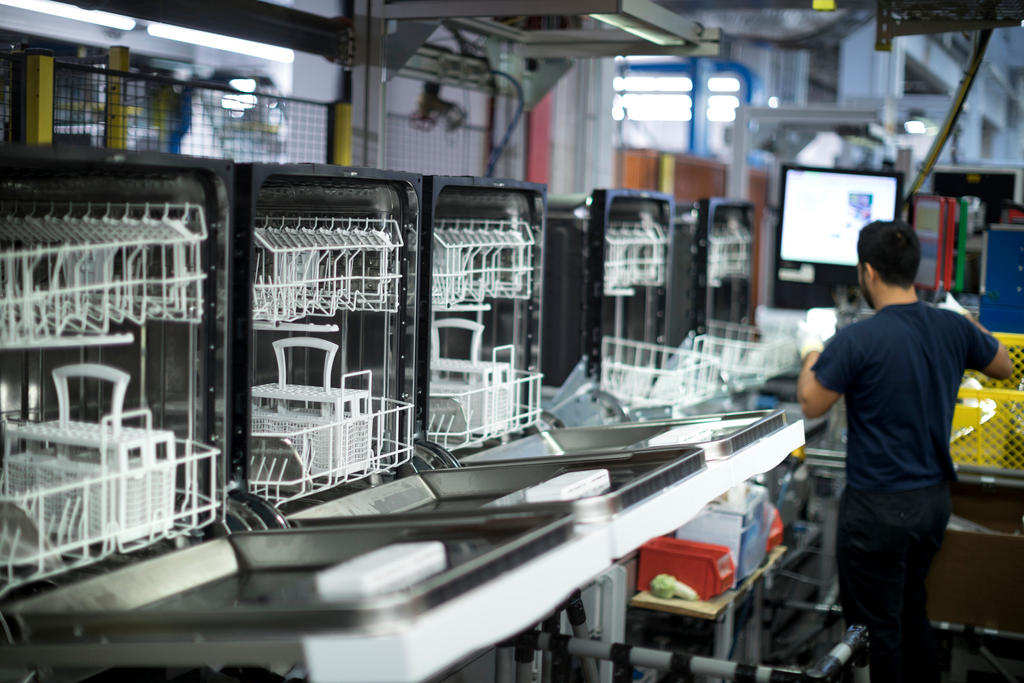Are Swiss strikes on the rise again?

This year, Switzerland marks the 100th anniversary of the 1918 General Strike. Although strikes were non-existent for years in the land of labour peace, Vania Alleva, president of Switzerland’s largest union UNIA, says the strike is making a comeback. And on Tuesday, employees at the Swiss News Agency went on indefinite strike over a management restructuring plan involving a staff cut of nearly 25%.
In Switzerland, strikes aren’t just part of the history books. Since the early 2000s, collective labour disputes have been on the rise, affecting sectors that had not previously used such tactics.
In November 1918, Switzerland was affected by a general strike – the culmination of violent social conflict that took place near the end of the First World War in several European countries. On November 12, nearly 250,000 people – including many railway workers – responded to a call launched by the Comité d’Olten (“Olten Committee”), an action group of Social Democratic Party members and trade unionists.
The entire country was paralyzed by the strike. The most serious disruptions occurred in the municipality of Grenchen, in the north-western canton of Solothurn, where three strikers were killed by the Swiss Army on November 14. Faced with the intransigence of the Federal Council, which threatened to give the Army orders to shoot strikers, the Olten Committee surrendered, and work resumed on November 15. While it only lasted three days, the General Strike is still considered today to be one of the most important social conflicts in Swiss history.
In a book entitled “Strikes in the 21st century” published on the 100th anniversary of the General Strike, the UNIAExternal link trade union revisits notable strikes in recent years in Switzerland. It is co-written by UNIA president Vania Alleva.
swissinfo.ch: Given the surrender of the Left, we have long considered the General Strike of 1918 to be a failure. Did it also leave some positive legacy?
Vania Alleva: Although brutally broken up by the army, this labour action – the most important in Swiss history – bore fruit. Several demands made at the time were subsequently met, such as introduction of the old-age insurance fund (AVS), collective labour agreements (CCT) and the 48-hour work week, as well as women’s right to vote. These are important advances which, 100 years on, still benefit workers in this country.
swissinfo.ch: Would the Swiss still be able to defend their interests in a collective strike of this magnitude?
V.A.: The conditions for such a strike are not there at present. In the last 20 years, we have nevertheless seen a revival of social conflicts in Switzerland. The strike practically disappeared after the Second World War, but it has once again found its place in the hands of employees as an instrument of legitimate struggle. And not only among construction or industry workers, who have a strong tradition of mobilisation, but increasingly also white collar-workers who have up to now not fought collectively for their rights.
swissinfo.ch: Why is that?
V.A.: During the decades of economic growth after the Second World War it was possible to get improvements in pay and working conditions through negotiation. But since the economic crisis and rise of neo-liberalism in the 1990s, the social partnership is struggling. The bosses have got weaker. They tend to stick to more ideological positions and are often cut off from the culture of Swiss social partnership.
As a result, many company bosses no longer consider their employees as partners with whom they negotiate as equals. This situation has brought an upsurge of tensions and it is sometimes necessary to resort to a strike to force the bosses to negotiate.
Staff at the Swiss News Agency (SDA-ATS), the country’s only news wire service and the main source of news for many Swiss media, launched an “indefinite” strike on Tuesday morning over a management plan to slash up to 25% of jobs.
Employees voted the strike at a meeting on Monday evening. Supported by two media unions, employees are demanding negotiations with management over a plan to cut 36 out of a total 150 full-time equivalent posts.
They say management has not so far taken their demands seriously. They have also been angered by SDA-ATS director Markus Schwab’s comments at the weekend to the NZZ am Sonntag newspaper that SDA-ATS was responsible only to its shareholders.
Shareholders include the Swiss Broadcasting Corporation, to which swissinfo.ch belongs, and private publishers Tamedia and NZZ.
The agency expects a deficit this year of CHF3.1 million ($3.31) following a CHF1 million deficit in 2017.
The strike is still ongoing this Wednesday and will continue for an unknown amount of time.

swissinfo.ch: Isn’t calling a strike also a way for the unions to get visibility at a time when they too are increasingly weak?
V.A.: A strike is never a walk in the park. It brings heavy constraints and risks for all the protagonists. The union cannot force employees to strike, the decision is always theirs. In our experience, we have seen that the public are generally supportive of strikers and their courage. It is they who are the centre of attention, not the union behind them.
swissinfo.ch: Nowadays strikes look more like defensive action, against redundancies, job cuts, delocalization and so on. No-one goes on strike to demand a pay rise or a cut in working hours like they used to.
V.A.: Most strikes in recent years have indeed been aimed at defending jobs and keeping what has been won. But there have also been more offensive strikes. I am thinking, for example, of the builders’ strike in 2002. Nearly 15,000 workers took to the streets and finally won something the unions had been demanding for years, early retirement at 60. It was a historic strike that was successful in the end.
swissinfo.ch: The social partnership is considered one of the pillars of the “Swiss exception”, along with federalism, neutrality and the humanitarian tradition. Do strikes really have a place in our country?
V.A.: The social partnership is indeed an important pillar of Switzerland. Unfortunately, many sectors do not have collective agreements, and they are also the sectors with the worst working conditions. As for the right to strike, it is enshrined in the Constitution. So it is a completely legal tool, generally used as a last resort when all other means have failed.
swissinfo.ch: Swiss workers still don’t strike much compared with other countries. What is holding them back?
V.A.: In Switzerland, the myth of labour peace is rather set in people’s minds. Several decades with no labour conflicts have influenced attitudes. But today it is almost impossible to obtain social advancements or improvements in working conditions without a fight.
swissinfo.ch: If we compare the economic situation in Switzerland with the one in France, where strikes are more frequent, should we not conclude that labour peace is a pre-condition for success?
V.A.: The strikes in Switzerland in the last few years have not stopped economic development, quite the contrary. In most cases it has been possible to improve salaries and working conditions or save jobs. If the Swiss economy is doing well, it is because our country has highly motivated, well-trained employees, who also have a right to a share in the wealth they produce.
swissinfo.ch: Many experts think that the worker of the future will be increasingly flexible, mobile and independent. Will strikes still have a place in that world of work?
V.A.: Of course! Digital technology makes working conditions more precarious and so the need to mobilize is even stronger. But it is indeed more difficult. We need to think about other ways of keeping contact with employees and means of action that are a bit different.
In Germany, employees recently decided to block the sending and receipt of E- mails for several hours, so paralyzing work within the company. That’s an example of a new form of collective struggle in the digital age.
Translated from French by Celia Luterbacher and Julia Crawford

In compliance with the JTI standards
More: SWI swissinfo.ch certified by the Journalism Trust Initiative













You can find an overview of ongoing debates with our journalists here . Please join us!
If you want to start a conversation about a topic raised in this article or want to report factual errors, email us at english@swissinfo.ch.